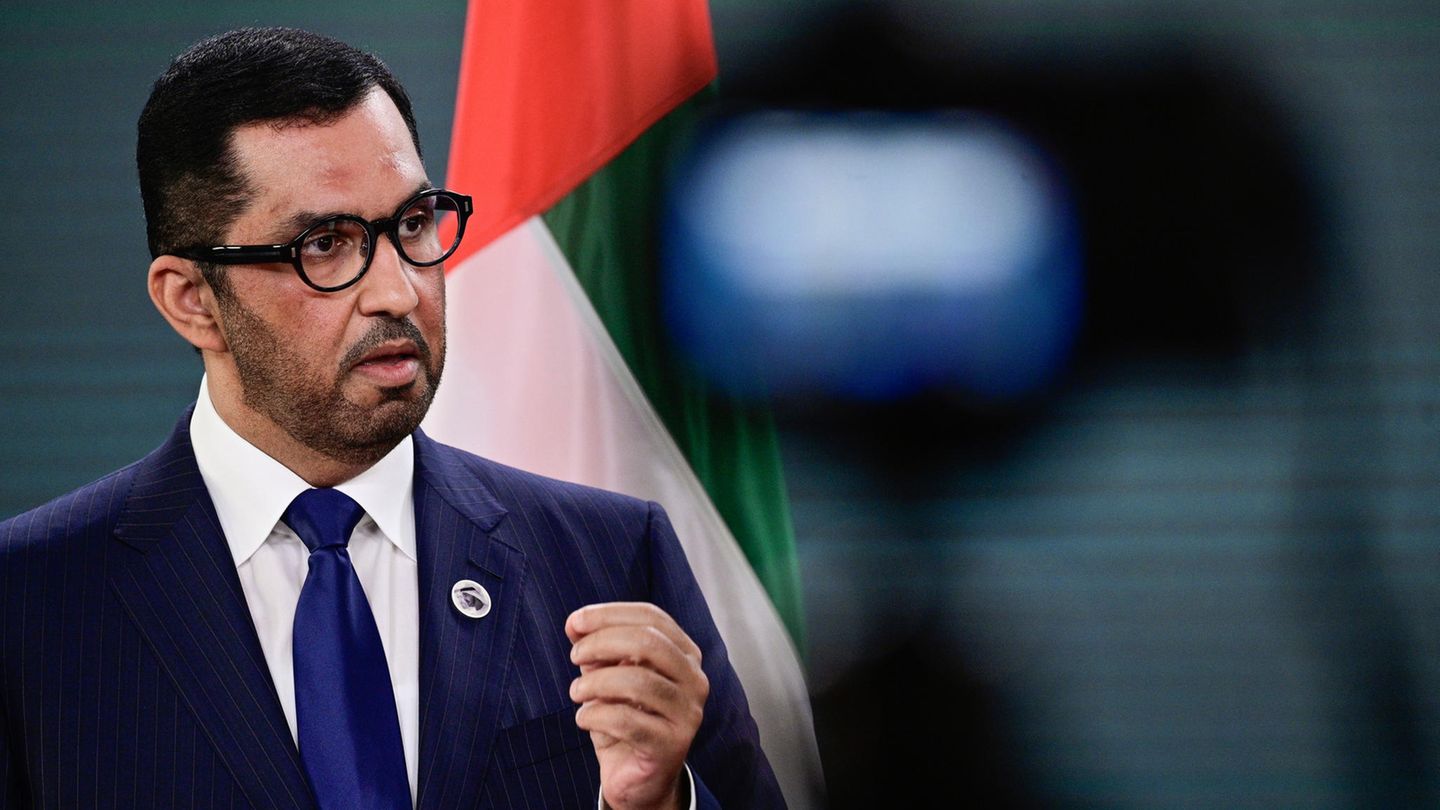portrait
The UN climate conference, which begins this week, will be chaired by Ahmad al-Jaber. The man from Abu Dhabi’s main job is the head of an oil company. What does this mean for climate protection?
The man, all in black, wanders restlessly up and down the stage, gesticulating wildly and his voice becomes noticeably shriller. Al Gore is audibly angry. “Shamelessly,” said the former US Vice President during his Ted Talk, the oil and gas industry has taken control of the COP process this time.
This refers to the 28th UN Climate Change Conference, which begins this Thursday in the United Arab Emirates. Gore’s outrage is directed at the host of this year’s summit: Sultan Ahmad al-Jaber, engineer, economist and acting Minister of Industry and Progress of the United Arab Emirates. And at the same time CEO of the twelfth largest oil company in the world, the state-owned Abu Dhabi National Oil Company, or ADNOC for short.
It is a unique event in the 28-year history of the climate conferences. Never before has the boss of an oil company chaired the World Climate Conference.
The outrage over al-Jaber could hardly be greater. Non-governmental organizations and members of the US Congress and the European Parliament have been warning for months that the summit would be hijacked by the fossil fuel industry and are calling for al-Jaber’s removal. How credibly can the boss of a state-owned oil company in a petrostate fight for climate protection, i.e. for the move away from fossil fuels, when he and his country are making billions in business with the raw material?
According to estimates, the United Arab Emirates produces oil worth around $250 million a day. And al-Jaber has been running this business since 2016. Only a few can see anything positive in the occupation, including US climate representative John Kerry, who describes the controversial personnel as an “experiment” that could work – or not.
“Maximum energy, minimum emissions”
In any case, it is risky: the 50-year-old al-Jaber, who often appears in the traditional white robe, makes no secret of the fact that he wants to play a larger role at the conference than his predecessors, who were content with standing between the two to convey different country interests. There will be a “paradigm change” and the political process must be supplemented by private capital and entrepreneurial thinking, he recently told the British daily newspaper “Times”. Critics fear little good will come from oil companies determining the “mindset” because, although they talk a lot about sustainable development and climate neutrality, they are actually doing the opposite.
The experiment could go terribly wrong. At international conferences, al-Jaber likes to advertise with the slogan “maximum energy, minimum emissions.” What sounds good at first, but in practice means that ADNOC continues to pump its oil undaunted – and is even expanding production. And with it its emissions.
The company plans to invest more than $150 billion in “growth projects” by 2025, including expanding its crude oil production capacity to five million barrels per day by 2030 (a barrel is 159 liters). It fits with the expansion strategy that ADNOC wants to take over the plastics manufacturer Covestro for 11.6 billion euros and has recently also courted the BASF oil and gas subsidiary Wintershall Dea.
ADNOC emits more climate pollutants than ExxonMobil or BP and lacks a credible reduction plan. The company only uses a fraction of its investments – $15 billion – to reduce emissions caused by oil production: offshore oil platforms are now powered by electricity and the company wants to use digital tools to better understand where energy is being wasted . ADNOC has also begun construction of large-scale carbon capture projects that will then be buried underground. Future technologies that have not yet saved even one percent of global greenhouse gas emissions from fossil fuels.
“A conflict of interest remains a conflict of interest”
The self-image behind it is clear: the United Arab Emirates are literally swimming in oil. Around 100 billion barrels of exploitable reserves still lie beneath the desert and ocean floors. This would allow Germany to cover its current consumption for around 130 years. The deposits would be worth $7,000 billion today. Which businessman would want to give up voluntarily?
Certainly not Ahmad al-Jaber. The man himself is all too dependent on the whims of his sponsors. He owes his career primarily to the company of which he is now CEO. He started working there as a young man, and ADNOC generously helped with scholarships. He used this to finance his chemical engineering studies in California and later received his doctorate in economics in England. Back in Abu Dhabi, the ruling family quickly entrusted him with key positions, as a kind of government spokesman, minister of state and special envoy for climate change. His most important sponsor: Mohammed bin Zayed Al Nahyanruler of the United Arab Emirates.
A nice guy, smart and clever, that’s what Al Gore calls him, but he also warns: “A conflict of interest is still a conflict of interest.” And for anyone who still doubts the duplicity of the oil industry, there is an interesting number: this year, according to the International Energy Agency, the fossil energy industry has also invested more than 1 trillion US dollars in new funds in the production of coal, gas and oil. Worse still, corporations like Shell have diverted their investments from renewables to fossil fuels. This year of all years, in view of record temperatures, droughts, forest fires and flood disasters, has dramatically shown that the consumption of fossil fuels must be reduced immediately.
Source: Stern
I have been working in the news industry for over 6 years, first as a reporter and now as an editor. I have covered politics extensively, and my work has appeared in major newspapers and online news outlets around the world. In addition to my writing, I also contribute regularly to 24 Hours World.




